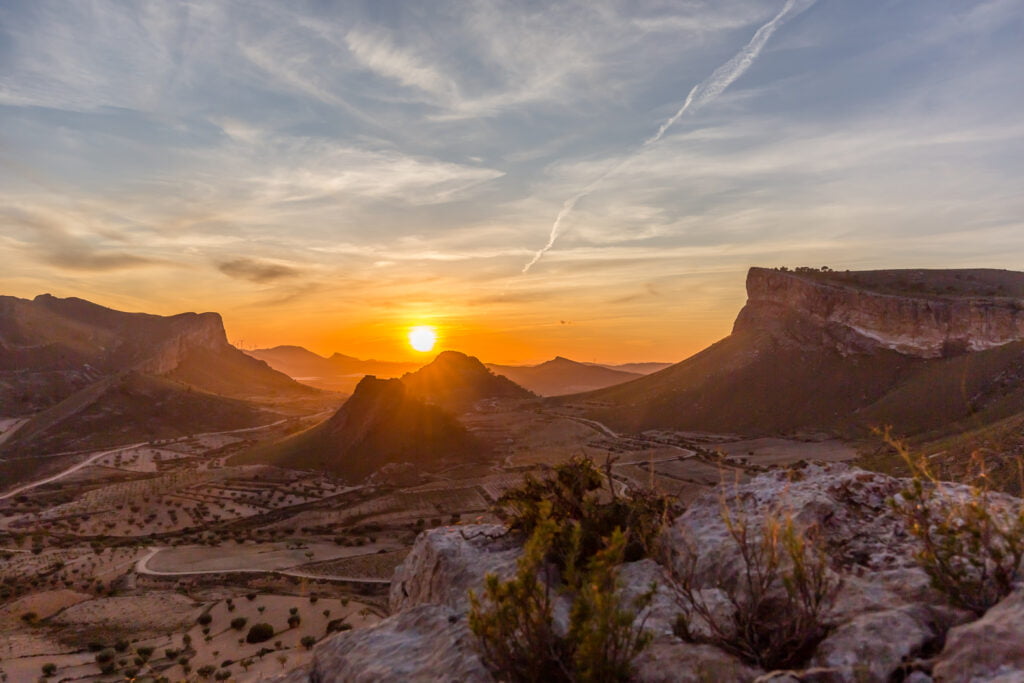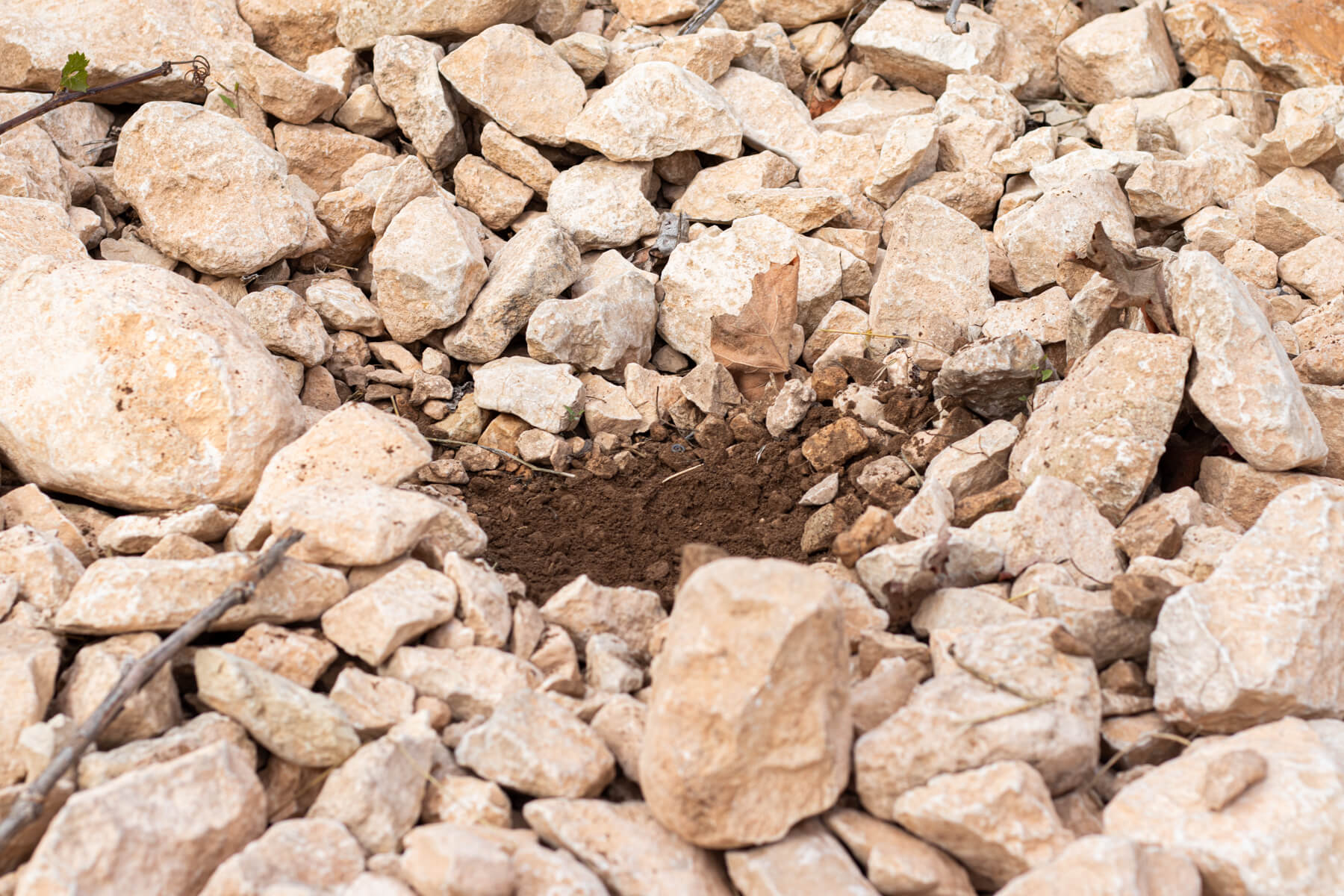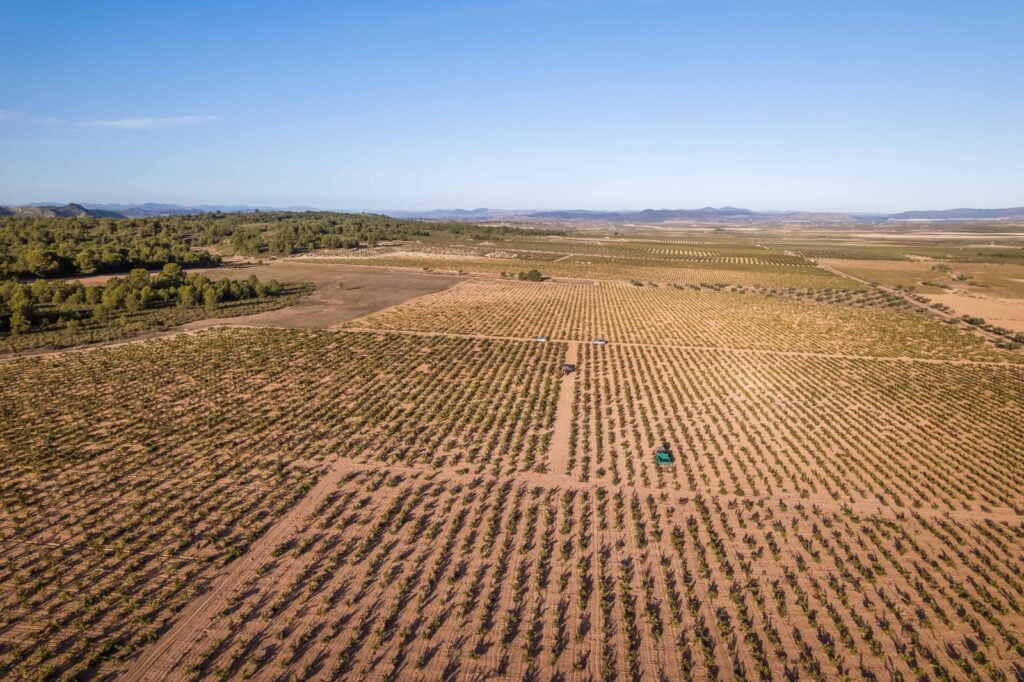TERROIR

High altitude, sunny slopes and cool limestone subsoils
Although just an hour’s drive from Spain’s Mediterranean coast, Jumilla’s vineyards grow at high altitudes, ranging from 350m to above 800m. At the higher elevations, the vines are grown in cool, Continental conditions, particularly when planted on north-facing slopes. Typically, during the ripening cycle, the grapes draw all the benefits from the sharp variations in temperature between day and night.
Climate and special vineyard locations
Overall, the region enjoys a mix of Continental and Mediterranean climatic influences and bathes in beautifully bright sunshine for around 3,000 hours in the year. While these influences forge the character of the wines in general, it is the huge variety of vineyard locations that determines the individual profiles of the wines. Along with the differing altitudes and climatic influences, vines are planted on slopes with different exposures and in different landscapes. Many of these special vineyard locations are known locally as ‘parajes’, denoting a historically favourable terroir for quality wine production.
The soil factor
While there is great diversity in landscape, the soils are relatively homogeneous with a predominance of deep layers of cool limestone, which holds on well to the meagre rainfall (just over 300mm/year) and enables the majority of the vineyards to be dry-farmed. As one of the driest wine regions in Spain, conditions are optimal for organic vine-growing, which is today practised across 70% of the appellation’s surface area. Gravel and volcanic soils are also found in some areas of the region.

Discover the wine making region of Jumilla
WINE PROFILES
discover more about jumilla wines
TERROIR
DISCOVER AN EXCEPTIONAL VINE-GROWING LAND
WINEMAKING
WHERE TRADITION AND MODERNITY COME TOGETHER
WINE TOURISM
WHY PEOPLE LOVE TO COME AND VISIT JUMILLA


